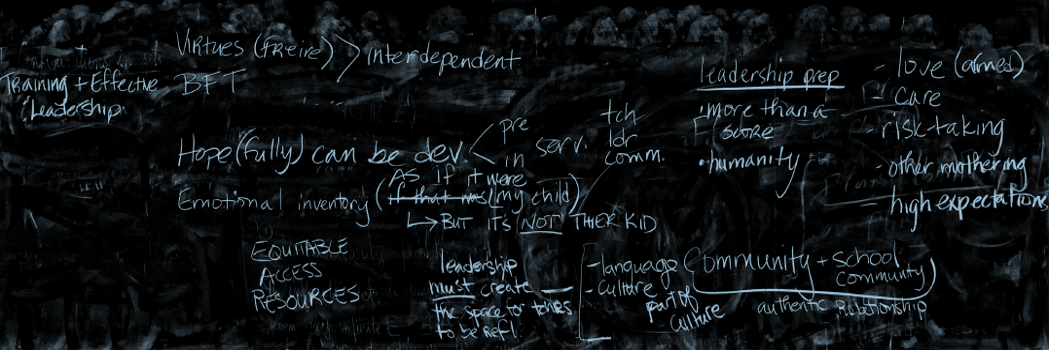I was struck by Beauboeuf-Lafontant’s (2002) discussion of mothering, motherhood, and “other mothering,” and in particular by the way she named the distinction between motherhood as defined within a capitalist, racist patriarchy, and motherhood as defined by a womanist, Black feminist lens. Motherhood defined by “mainstream, patriarchal” notions (p. 75) is “domesticated,” hierarchical, individual, and the teachers . Thus, comparisons between teaching and motherhood, filtered through the lens of whiteness, capitalism, and patriarchy, is “resented” as “gender stereotyping” and viewed only in service to individual men and children. Thus, the white teachers she profiles, in their attempt to push back against one form of gender oppression, reinforce the problematic conception of motherhood in service to racial capitalism.
However, through the womanist and Black feminist lens, mothering is understood as a “communal responsibility” (p. 76) and “central to …resistance to domination, both patriarchal and racial” (p. 76). Nurture and mothering becomes “inclusive in several senses: it is not limited to women, it is expressive of relationship within community, and it is not separate from the exercise of authority” (p. 76). It is also a direct challenge the underlying racist, capitalist notions of property. As Patricia Hill Collins writes, as quoted by Beauboeuf-Lafontant, “by seeing the larger community as responsible for children and by giving other-mothers and other nonparents “rights” in child rearing, African-Americans challenge prevailing property relations. It is in this sense that traditional bloodmother/other-mother relationships in women-centered networks are “revolutionary” (p. 77).
Witherspoon and Anderson (2010) similarly name the ways that whiteness, capitalism, and racism have served to corrupt and hijack conceptions of care, nurture, and mothering. As they write, “research in feminism, leadership, care, and justice has been located in European, White-accepted wisdom” (p. 220). This form of care does not “interrogate patriarchy, privilege, and power inherent in exclusion and inequality” (p. 229). Instead, this form of care works in tandem with systems of oppression – covering them up or sugar coating them. What it would look like to fully challenge and dismantle these notions of care within teaching and teacher preparation programs?



